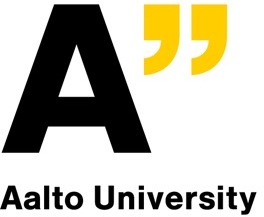Autumn School in Computational Physics:
Why Free Energy Matters and How to Compute It
24th to 28th October 2016Helsinki, Finland
[ Program | Venue | Registration | Accommodation ]

|
| We are proud to announce this five-day school in computational physics on the special topic of free energy. The school will focus on the question of why free energy is significant in the understanding of physical systems, and on computational methods of computing the quantity. The program will consist of lectures and robust hands-on sessions given by excellent speakers, all at the heart of Helsinki. |
Target audienceThe school is aimed at graduate students and postdocs. |
What you will learnYou will learn the significance of free energy, including the entropic contribution, in the behavior of various physical systems over a range of length and time scales. In doing so, you will learn to think about problems in physics through the concept of free energy. Furthermore, you will gain rudimentary experience in established methods of computing free energy, experience which will be valuable in your day-to-day work as a computational physicist. |
TopicsWe will explore free energy in the following contexts: |
List of speakers |
Program |
| Click here for instructions on how to use the Taito supercomputer for running exercises. |
Monday October 249:25-9:30 Opening of the school 9:30-10:30 Prof. Hanna Vehkamäki: "Why energy has to be free" (click here for PDF of slides) Classical thermodynamic reasoning for the concept of free energy, accompanied by an example concerning cluster formation via collisions of vapor molecules and the analogy to the Ising model. 10:30-11:00 Coffee break 11:00-12:00 Prof. Hanna Vehkamäki continued 12:00-14:15 Lunch break 14:15-15:30 Hands-on session with Roope Halonen 15:30-16:00 Coffee break 16:00-18:00 Hands-on session continued 20:00-22:00 Brewery tour and tasting at Stadin Panimo (Kaasutehtaankatu 1, building 6). We meet at the exit of Kalasatama metro station at 19:45. |
Tuesday October 259:30-10:30 Prof. Dario Alfè: "Free energy of solids" (click here for PDF of slides) Free energy in condensed-matter systems, and computing this using density-functional theory within the quasi-harmonic approximation. Computing thermomechanical properties from the free energy. 10:30-11:00 Coffee break 11:00-12:00 Prof. Dario Alfè continued 12:00-14:15 Lunch break 14:15-15:30 Hands-on session. Download PDF here. 15:30-16:00 Coffee break 16:00-18:00 Hands-on session continued |
Wednesday October 269:30-10:30 Prof. Hannes Jónsson: "Finding the mechanism and rate of thermally activated transitions" (click here for Prof. Jónsson's web page, and see "Lecture notes on transition state theory and rate estimates") Methods for using free energy calculations to determine the mechanism and to estimate the rate of thermally activated transitions such as chemical reactions, diffusion events, conformational changes and magnetic transitions. Transition state theory implemented as a flexible reversible work calculation and simplified within the harmonic approximation. The WKE two step procedure. Long time scale simulations based on rate theory calculations. 10:30-11:00 Coffee break 11:00-12:00 Prof. Hannes Jónsson continued 12:00-14:15 Lunch break 14:15-15:30 Hands-on session with Dr. Elvar Jónsson 15:30-16:00 Coffee break 16:00-18:00 Hands-on session continued |
Thursday October 279:30-10:30 Dr. André Juffer: "Protein-ligand affinity calculations" (click here for PDF of slides) The function of a protein is defined by its ability to bind to other molecules, ranging from protons and ions to small ligands and other proteins and cell membranes. While a qualitative description of its binding behaviour may be sufficient for basic insight, in many, if not all, cases a quantitative description in the form of the affinity (the Gibbs free energy of binding) is absolutely required, as this property defines the protein's propensity to bind to a given ligand under a given set of conditions, which is important for instance in drug design. The purpose of this presentation is to briefly describe the affinity in the context of biological applications and to discuss means to compute it by computational approaches. The hands-on session will focus on the prediction of acid dissociation constants (pKa) of titrating sites in proteins, the relevance of which will be discussed during the lecture. Methodologies that will be discussed include continuum electrostatics, potential of mean force approaches, Monte Carlo, replica exchange, coarse-grained description of molecular systems, and the like. 10:30-11:00 Coffee break 11:00-12:00 Dr. André Juffer continued 12:00-14:15 Lunch break 14:15-15:30 Hands-on session with Pierre Leprovost 15:30-16:00 Coffee break 16:00-18:00 Hands-on session continued 19:00-22:00 Banquet dinner at restaurant Sea Horse, Kapteeninkatu 11. |
Friday October 2810:00-11:00 Prof. Ian Ford: "Nonequilibrium thermodynamics and the destruction of free energy" (click here for PDF of lecture notes) Summary of the topics covered during the week. Non-equilibrium thermodynamics. The destruction of free energy. 11:00-11:30 Coffee break 11:30-12:30 Prof. Ian Ford continued 12:30-12:35 Closing of the school |
AccommodationHousing must be arranged by the participants. There are plentiful options in Helsinki. |
Organizers |
|
|
|


|
| The workshop is organized by the Department of Applied Physics in Aalto University. |
|
|
Department of Applied Physics Aalto University P.O. Box 11100 FI-00076 Aalto, Finland |
| We gratefully acknowledge techical support from CSC - The IT Center for Science. |  |
Funding |
|
| |
The network in Condensed Matter and Materials Physics (CMMP) |
| |
Centre for Quantum Engineering (CQE) |
| |
Centre Europeén de Calcul Atomique et Moléculaire (CECAM) Aalto Node |
Photo credits: Visit Finland / Jussi Helsten. Last updated 31.10.2016.